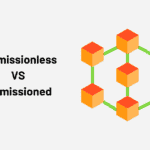In recent years, both artificial intelligence (AI) and blockchain technology have emerged as transformative forces across multiple industries. While AI is known for its ability to automate processes, optimize decision-making, and analyze large sets of data, blockchain is celebrated for its decentralization, transparency, and security features.
These technologies, once considered separate innovations, are now beginning to intersect in meaningful ways, leading to numerous advancements. LI.FI, a decentralized finance (DeFi) platform, connects blockchain networks by enabling seamless asset transfers across different chains, further enhancing the integration of AI and blockchain technologies.
Enhancing Blockchain Efficiency with Artificial Intelligence
Due to its decentralized nature, blockchain transactions often require consensus from multiple nodes, which can be a slow and resource-intensive process. Here, artificial intelligence is playing a role by optimizing and streamlining blockchain processes, making networks faster, more secure, and scalable.
Smart contracts, which are self-executing contracts coded on blockchain, can benefit from AI algorithms. By using machine learning, AI can analyze vast amounts of data to predict potential errors or inefficiencies in smart contracts before they are deployed. This can reduce the likelihood of vulnerabilities being exploited in decentralized applications like DeFi Saver, which automates decentralized finance (DeFi) asset management.
Blockchain networks, particularly those using proof-of-work (PoW) mechanisms, are notorious for their high energy consumption. AI can enhance energy efficiency by optimizing mining processes and distributing workloads intelligently across the network, reducing the environmental impact of blockchain operations.
AI can assist in verifying large datasets used in blockchain systems by quickly identifying patterns or discrepancies, improving the accuracy of transactions. This has significant implications for decentralized finance platforms like Uniswap, where millions of transactions occur daily.
Security and Interoperability: How AI is Impacting Blockchain Security and Cross-Chain Solutions
Blockchain technology is widely recognized for its robust security features. The decentralized nature of blockchain, combined with cryptographic algorithms, makes it highly resistant to tampering and fraud. However, even the most secure systems can benefit from improvements, and this is where artificial intelligence comes in.
AI’s ability to analyze massive amounts of transaction data can be used in identifying fraudulent behavior. By using machine learning algorithms, AI systems can detect abnormal transaction patterns and flag potential security risks in real time.
Blockchain networks rely on consensus mechanisms to validate transactions and secure the network. AI algorithms can be used to predict the likelihood of node reliability and optimize the validation process, significantly speeding up transaction confirmation times and reducing energy consumption.
The Future of AI and Blockchain Synergy: Unlocking New Possibilities
As artificial intelligence continues to enhance blockchain technology, the potential for innovative applications and cross-industry solutions grows exponentially. The combination of AI and blockchain opens up possibilities that were previously unattainable with either technology on its own.
DeFi is one of the fastest-growing sectors in the blockchain space, and the integration of AI into DeFi platforms has the potential to revolutionize the way financial services are delivered. Automated asset management tools like DeFi Saver can leverage AI to provide users with personalized strategies for maximizing returns while minimizing risks. AI can also be used to optimize yield farming and liquidity provision strategies on platforms like Uniswap, ensuring that users receive the best possible returns on their investments.
Blockchain is already being used to improve transparency and traceability in supply chains. By integrating AI into these blockchain systems, companies can further optimize logistics, forecast demand more accurately, and detect potential disruptions before they occur.










